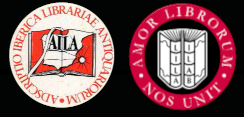


Home |
Temáticas |
Catálogos |
Pedidos |
  |  |
|||||||
|

|
RUGENDAS. (Johann Moritz) HABITANTE DE GOYAS, QUADRO A ÓLEO PINTADO SOBRE MADEIRA. |
|
|
Clique nas imagens para aumentar. ARETINO. (Pietro) ARETINO PENTITO, CIOÉ PARAFRASI SOVRA I SETTE SALMI DELLA PENITENZA DI DÁUIDE.Di nuóuo corréto e ristampato. All" Illustrissimo Signor Costanzo di Silvecane, Consiglier di Sua Maestà Christianíssima nel suo Consiglio di Stato; Presidente nella Corte sourana delle Monete; e Commissário generale di detta Maestà nelle Prouíncie di Lione, Delfinato, Prouenza &c. IN LIONE, Apresso Gvilielmo Barbier, Stampatore del Rè. M. DC. XLVIII. [1648] In 12.º de x cm. Com 190, [ii] págs. Encadernação da época em pergaminho flexível. Impressão em caracteres redondos e itálicos (na dedicatória e nas poesias da página 190) ornamentado com pequeno florão na folha de rosto, cabeções alegóricos, com vinhetas tipográficas, inicias decoradas, na dedicatória, introdução e no princípio de cada salmo, tudo em xilogravura, assim como alguns pequenos florões de remate no fim de alguns salmos. Exemplar com ex libris heráldico de Brochan du Breuil, Conselheiro do Parlamento, gravado em cobre e desenhado por Charles-Grégoire Mathey, com cota de biblioteca manuscrita em letra coeva no canto superior esquerdo e na parte inferior do ex libris. Outra cota no interior da pasta posterior. A página 22 não tem numeração, a 32 tem a numeração junto ao festo, e a página 119 está numerada 116. Décima primeira edição muito rara, só três das bibliotecas italianas possuem exemplares catalogados. A primeira edição foi publicada em Veneza em 1534 e a presente edição é a última conhecida. Esta obra insere-se no conjunto de obras religiosas que Aretino escreveu por encomenda de patronos eclesiásticos ou para ter melhor aceitação na sociedade do seu tempo, que o temia e detestava pelas suas obras satíricas e licenciosas. Nela o autor comenta os sete salmos penitenciais, assim designados por Cassiodoro, que são os salmos com os números 6, 31, 37, 50, 101, 129 e 142. Os salmos são cânticos de arrependimento e penitência e cada um está ligado a cada um dos sete pecados capitais. André Brochan du Breuil (1711 - Bures-sur-Yvette, Essonne, 1778) Conselheiro do Parlamento de Paris. O seu testamento elaborado, em 3 de Agosto de 1778, pelo notário François Bouron está preservado nos Arquivos Nacionais de França. Pietro Aretino (Arezzo, 1492 - Veneza, 1556) escritor, poeta e dramaturgo italiano, que se notabilizou pelo seu estilo incisivo, cínico e imoral. Apesar disso, foi amigo de Ticiano, que o retratou mais de uma vez e obteve o patrocínio do Papa Leão X e de outros papas, e da família Médicis, o que lhe permitiu dedicar-se totalmente às letras e dar largas ao seu espírito satírico contra nobres e eclesiásticos o que lhe valeu a alcunha de Flagelo dos Príncipes.
Copy with heraldic ex libris of Brochan du Breuil, Councillor of the Parliament, etched in copper and designed by Charles-Grégoire Mathey, with a handwritten library shelf mark in the same font in the top left-hand corner and at the bottom of the ex libris. Another shelf mark in the back pastedown. Page 22 is unnumbered, page 32 is numbered next to the inner hinge, and page 119 is numbered 116. The eleventh edition is very rare, only three Italian libraries have catalogued copies. The first edition was published in Venice in 1534 and the present edition is the last known. This work is part of a group of religious written by Aretino at the behest of ecclesiastical patrons or to gain acceptance in the society of his time, which feared and detested him for his satirical and licentious works. In it, the author comments on the seven penitential psalms, so named by Cassiodorus, which are the psalms with the numbers 6, 31, 37, 50, 101, 129 and 142. The psalms are songs of repentance and penance and each one is linked to each of the seven deadly sins. André Brochan du Breuil (1711 - Bures-sur-Yvette, Essonne, 1778) Councillor of the Parliament of Paris. His will drawn up on 3 August 1778 by the notary François Bouron is preserved in the National Archives of France. Pietro Aretino (Arezzo, 1492 - Venice, 1556) was an Italian writer, poet and playwright who was noted for his incisive, cynical and immoral style. Despite this, he was a friend of Titian, who portrayed him more than once, and he obtained the patronage of Pope Leo X and other popes, and of the Medici family, which allowed him to devote himself entirely to letters and to unleash his satirical spirit against nobles and ecclesiastics, which earned him the nickname Scourge of Princes. Referências/References: SBN - IT/ICCU/MILE/038953 Referência: 2310PG010
Local: M-3-D-61 Caixa de sugestões A sua opinião é importante para nós. Se encontrou um preço incorrecto, um erro ou um problema técnico nesta página, por favor avise-nos. 
|
Pesquisa Simples




|
||
 |
|||
|